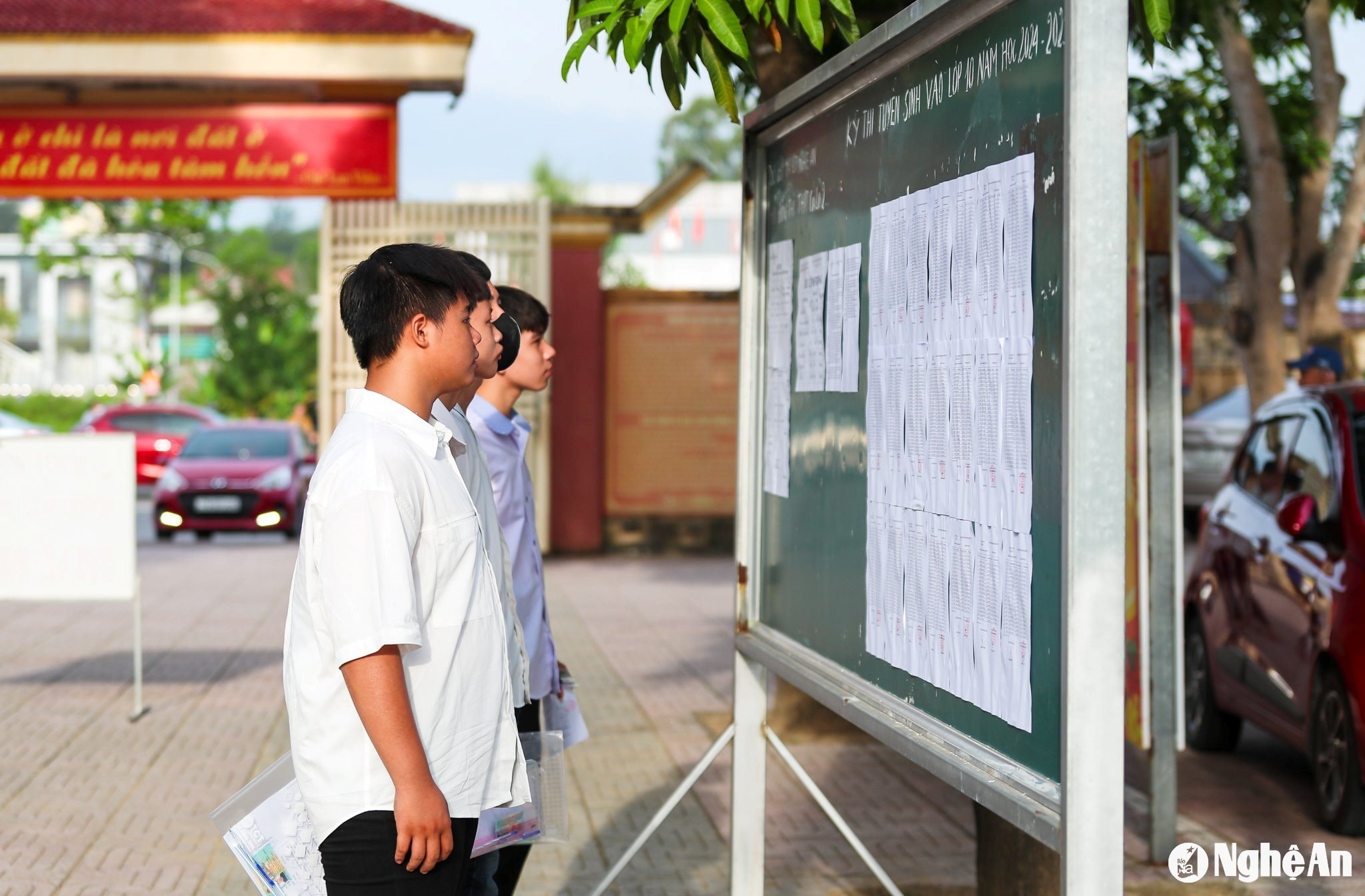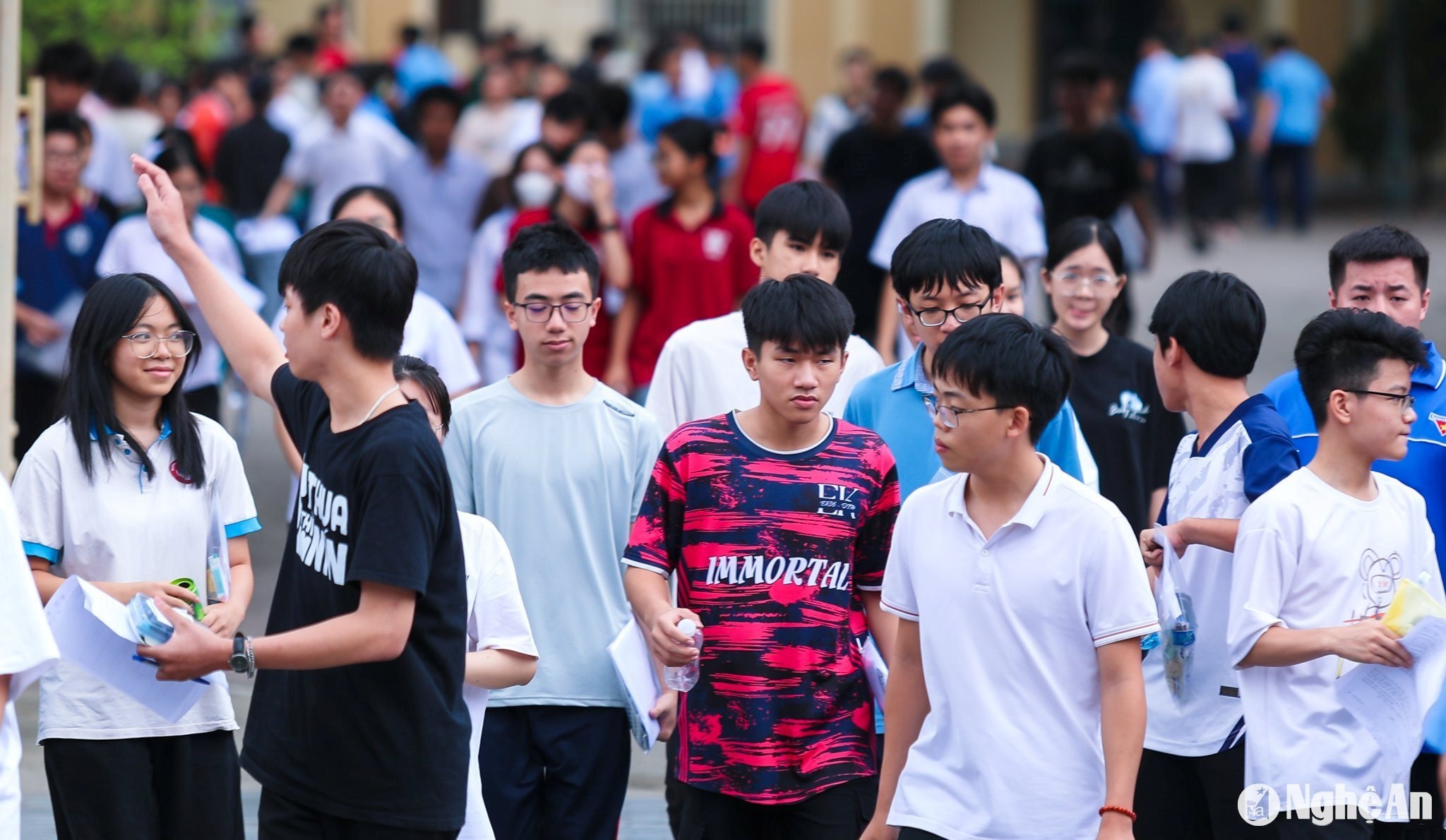Choosing and changing 10th grade wishes: It's time for more careful calculations
Changing the registration wishes to favorite schools or to ensure safety in the 10th grade exam in recent years has become familiar to students, especially at the high school level.
This is an effort to create conditions for students to increase their chances of continuing their studies in public schools, after completing the program at the secondary level. Some localities still set aside a certain amount of time, enough for candidates to consider their choices. The choice can be based on many criteria that students and their families can use as a basis such as the ability to pass the entrance exam, financial capacity, traffic conditions...

This approach first of all shows strategic calculations with humanistic meaning: Allowing candidates to make the most suitable choices for themselves and their families; demonstrating the spirit of the Party and State on the right to education of each person.
On the other hand, it also creates conditions for "lower-rank" schools to open up many recruitment opportunities, while avoiding the desolate situation in which the school's board of directors and staff worry about whether they can recruit enough students to maintain or enhance the school's reputation and brand.
On the other hand, it is possible that to some extent, by improving the quality of enrollment, the school can still recruit students whose qualifications and abilities are in a category that can more or less "compete" with other schools, public schools in annual competitions, such as competitions for excellent students, competitions for scientific and technological innovation...
That means this policy will contribute to narrowing the gap between "top" and "bottom" schools, public and private schools, general and continuing education... If based on reasonable calculations, it will have positive effects not only on the development of a specific educational unit, but also contribute significantly to improving people's knowledge and other contributions to the economic, cultural and social life of a region.

However, it can be seen that allowing candidates to change their wishes currently still has some shortcomings and consequences.
First of all, the implementation is uneven across the country. In the recent admissions period, in Hanoi, "many candidates and parents wondered why there was no policy to adjust their wishes like in some other localities." Meanwhile, in Ho Chi Minh City, candidates can still change their wishes, but only before the exam. Some other localities allow candidates 3 to 5 days after the exam to change their wishes, such as in Nghe An.
This phenomenon first of all shows the lack of uniformity, even the state of "separatism" in the thinking of management and educational development strategy, even though each locality has its own reasons to justify based on the socio-economic and educational characteristics of its locality. Should the Ministry of Education and Training have more specific instructions with regulations and rules to unify this viewpoint?

Regarding the implementation of allowing candidates to register for more than one choice, changing the choice can lead to changes in enrollment, which can immediately have certain consequences. First of all, it creates psychological insecurity for candidates, their families and society.
There have been information pages that used the word “chaos” to describe the state of mind of parents and students when they received information about changes in their wishes in Hanoi, Ho Chi Minh City and Nghe An.
That psychological state will certainly cause candidates to have trouble concentrating on their revision and will have a significant impact on their performance in exams. And most importantly, it will lead to a shaken belief of students and society in the decisions of the industry.
It can also be seen that changes are not always a good sign in the enrollment structure, specifically the shift from the center to the outskirts and the outskirts to the center, as well as fluctuations in the quantity and quality of learners at each specific educational institution.
This is most evident in the fluctuations in the number of applications and benchmark scores of schools in localities that try to create conditions for candidates to change their wishes. This can be clearly seen in Nghe An in the past few years.
What is unusual but not surprising is that even in schools with a long tradition, brand name, and strength, the benchmark scores have basically fluctuated little over the years, or have fluctuated but not significantly, but in some schools, since allowing the change of wishes, the benchmark scores have suddenly become higher, even 4 or 5 points higher than before. The reason is the shift of wishes from "top" schools to "bottom" schools, from the center to the outskirts, from cities to the countryside, from plains to mountains.

When the institution allows it, choosing the safe option will obviously be the choice of the majority. But, according to the observation of this author, this transition process will gradually close the doors of public schools, even high schools, for students with lower academic performance, which in the previous situation, the doors were still wide open.
When students from the city flood into the surrounding areas, it is often difficult for local students to compete. Because, with the same innate intelligence, children from families in the city are always given the best conditions to prepare for this increasingly fierce competition, the obvious disadvantage belongs to the weak.
It is worth mentioning that, after studying for a while in “lower” or “peripheral” schools, students can transfer to “upper” or “central” schools, leaving empty seats in classrooms that previously belonged to someone else, right in the locality. And the person who should have sat in that seat was pushed to another school that they did not want.
The phenomenon that for a long time now, some students from the suburbs have to go to the city to study at public or private schools with tuition fees that are prohibitive compared to their family's income, or to switch to vocational training, even though they do not want to, is an important thing that makes us think.
And because of what has been said, to create fair competition in choosing aspirations, perhaps it is time for more careful calculations./.


